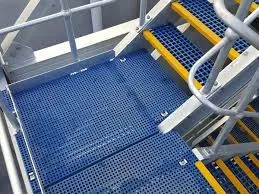
-
 Afrikaans
Afrikaans -
 Albanian
Albanian -
 Amharic
Amharic -
 Arabic
Arabic -
 Armenian
Armenian -
 Azerbaijani
Azerbaijani -
 Basque
Basque -
 Belarusian
Belarusian -
 Bengali
Bengali -
 Bosnian
Bosnian -
 Bulgarian
Bulgarian -
 Catalan
Catalan -
 Cebuano
Cebuano -
 China
China -
 China (Taiwan)
China (Taiwan) -
 Corsican
Corsican -
 Croatian
Croatian -
 Czech
Czech -
 Danish
Danish -
 Dutch
Dutch -
 English
English -
 Esperanto
Esperanto -
 Estonian
Estonian -
 Finnish
Finnish -
 French
French -
 Frisian
Frisian -
 Galician
Galician -
 Georgian
Georgian -
 German
German -
 Greek
Greek -
 Gujarati
Gujarati -
 Haitian Creole
Haitian Creole -
 hausa
hausa -
 hawaiian
hawaiian -
 Hebrew
Hebrew -
 Hindi
Hindi -
 Miao
Miao -
 Hungarian
Hungarian -
 Icelandic
Icelandic -
 igbo
igbo -
 Indonesian
Indonesian -
 irish
irish -
 Italian
Italian -
 Japanese
Japanese -
 Javanese
Javanese -
 Kannada
Kannada -
 kazakh
kazakh -
 Khmer
Khmer -
 Rwandese
Rwandese -
 Korean
Korean -
 Kurdish
Kurdish -
 Kyrgyz
Kyrgyz -
 Lao
Lao -
 Latin
Latin -
 Latvian
Latvian -
 Lithuanian
Lithuanian -
 Luxembourgish
Luxembourgish -
 Macedonian
Macedonian -
 Malgashi
Malgashi -
 Malay
Malay -
 Malayalam
Malayalam -
 Maltese
Maltese -
 Maori
Maori -
 Marathi
Marathi -
 Mongolian
Mongolian -
 Myanmar
Myanmar -
 Nepali
Nepali -
 Norwegian
Norwegian -
 Norwegian
Norwegian -
 Occitan
Occitan -
 Pashto
Pashto -
 Persian
Persian -
 Polish
Polish -
 Portuguese
Portuguese -
 Punjabi
Punjabi -
 Romanian
Romanian -
 Russian
Russian -
 Samoan
Samoan -
 Scottish Gaelic
Scottish Gaelic -
 Serbian
Serbian -
 Sesotho
Sesotho -
 Shona
Shona -
 Sindhi
Sindhi -
 Sinhala
Sinhala -
 Slovak
Slovak -
 Slovenian
Slovenian -
 Somali
Somali -
 Spanish
Spanish -
 Sundanese
Sundanese -
 Swahili
Swahili -
 Swedish
Swedish -
 Tagalog
Tagalog -
 Tajik
Tajik -
 Tamil
Tamil -
 Tatar
Tatar -
 Telugu
Telugu -
 Thai
Thai -
 Turkish
Turkish -
 Turkmen
Turkmen -
 Ukrainian
Ukrainian -
 Urdu
Urdu -
 Uighur
Uighur -
 Uzbek
Uzbek -
 Vietnamese
Vietnamese -
 Welsh
Welsh -
 Bantu
Bantu -
 Yiddish
Yiddish -
 Yoruba
Yoruba -
 Zulu
Zulu
large diameter fiberglass pipe
The Advantages and Applications of Large Diameter Fiberglass Pipes
Large diameter fiberglass pipes have become increasingly popular in various industries due to their numerous advantages over traditional materials such as steel and concrete
. These innovative pipes are primarily composed of a polymer matrix reinforced with glass fibers, which provides them with exceptional strength, durability, and corrosion resistance. As industries seek efficient and economical solutions for water transport, sewage systems, and industrial applications, large diameter fiberglass pipes present an attractive alternative.One of the most significant benefits of fiberglass pipes is their lightweight nature. Unlike traditional materials, fiberglass pipes are significantly lighter, making them easier to handle and install. This reduced weight not only lowers transportation costs but also facilitates quicker installation, resulting in lower labor expenses and reduced project timelines. The flexibility of fiberglass allows for easier installation on uneven terrain, further enhancing their practicality in various settings.
Corrosion resistance is another critical advantage of large diameter fiberglass pipes. In many applications, pipes are exposed to harsh environments, including chemicals, saltwater, and varying temperatures. Fiberglass pipes exhibit excellent resistance to corrosion and chemical degradation, ensuring a longer lifespan and reducing the need for frequent replacements. This durability makes them ideal for applications in wastewater management, chemical processing plants, and marine environments.
large diameter fiberglass pipe

Large diameter fiberglass pipes also offer superior hydraulic performance. The smooth inner surfaces minimize friction losses, allowing for efficient fluid transport. This characteristic is particularly beneficial in water supply systems and irrigation applications, where maintaining flow rates is crucial. Moreover, the inherent structural properties of fiberglass allow for thinner walls compared to traditional materials, which increases the internal diameter while keeping the overall weight manageable.
Another significant advantage of fiberglass pipes is their adaptability to a wide range of applications. They can be manufactured in various diameters, lengths, and configurations to meet the specific needs of different projects. This versatility allows engineers and designers to create tailored solutions for transportation systems, drainage, and even structural applications in construction.
Furthermore, the sustainability aspect of fiberglass pipe production cannot be overlooked. With a focus on reducing environmental impact, many manufacturers are utilizing recycled materials in their production processes, contributing to a circular economy. These eco-friendly practices are increasingly important as industries move towards more sustainable operations and seek to minimize their carbon footprint.
In conclusion, large diameter fiberglass pipes offer a robust solution for various industrial applications, combining lightweight design, superior corrosion resistance, and excellent hydraulic performance. Their adaptability and sustainability make them an increasingly favored choice among engineers and manufacturers. As industries continue to evolve and seek efficient methods for infrastructure development, the role of fiberglass pipes will likely expand significantly, paving the way for a more resilient and sustainable future.









